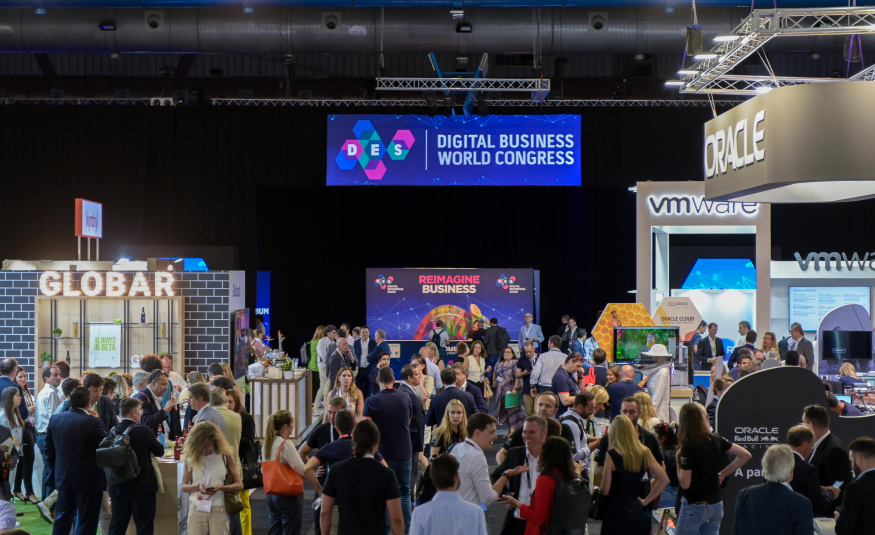This year’s Digital Enterprise Show (DES2022) hosted 14,843 professionals in Malaga, Spain, from around the world. They came together to discuss the challenges that digital transformation is facing.
Organisers said the attendance demonstrated the increase of new hires that companies have related to their digitalisation process, although there are concerns that not all open roles can be filled.
According to the Universidad Autónoma de Madrid’s report Empleabilidad y Talento Digital 2021 (Employability and Digital Talent 2021), demand for talent in the sector will have grown by more than 6% between 2021 and 2022, while unemployment will be less than 3%.
Visitors to the show, organisers say, were keen to understand how the industry can prevent the overflow of unfilled vacancies.
Juan Diaz-Andreu García, client partner and head hunter at Alexander Hughes Iberia, explained that the pandemic has forced professionals to acquire new skills. “Knowledge and training in data management are fundamental. In addition, they must know how to work in complex organisations,” he said.
Following this, Emilio Nestal Diaz, solutions architecture manager at Amazon Web Services (AWS), said that “most of the rejections at AWS are because we believe that the candidate will not be able to cope in a demanding and distributed environment”.
In the change in the relationship between companies and professionals, selection processes must pay attention to "the causes and opinions of candidates who do not accept an offer", according to Fran Canales, corporate director of talent acquisition at Banco Santander.
DE2022 also shone a spotlight on how digitalisation can exclude users and members of the workforce.
As 15% of the world’s population have disabilities which prevent use of inaccessible technology and services, applications need to focus less on the capabilities of the person rather than diversity, Jesús Hernandez Galán, accessibility and innovation director of the ONCE Foundation, said at DES2022.
According to Galán, poorly designed technology excludes users – such as some facial recognition software which "do not take into account people who have a different face.”
Encouraging diversity in the industry and improving accessibility of products and services are fundamental to creating spaces where people matter, according to Lisa Mae Brunson, creator of tech platform Wonder Women Tech.
"We can hire more women or more workers with different skin tones, but there will still be challenges we are not addressing. We need to build an environment where we give people a voice and make them feel they are where they belong.”





